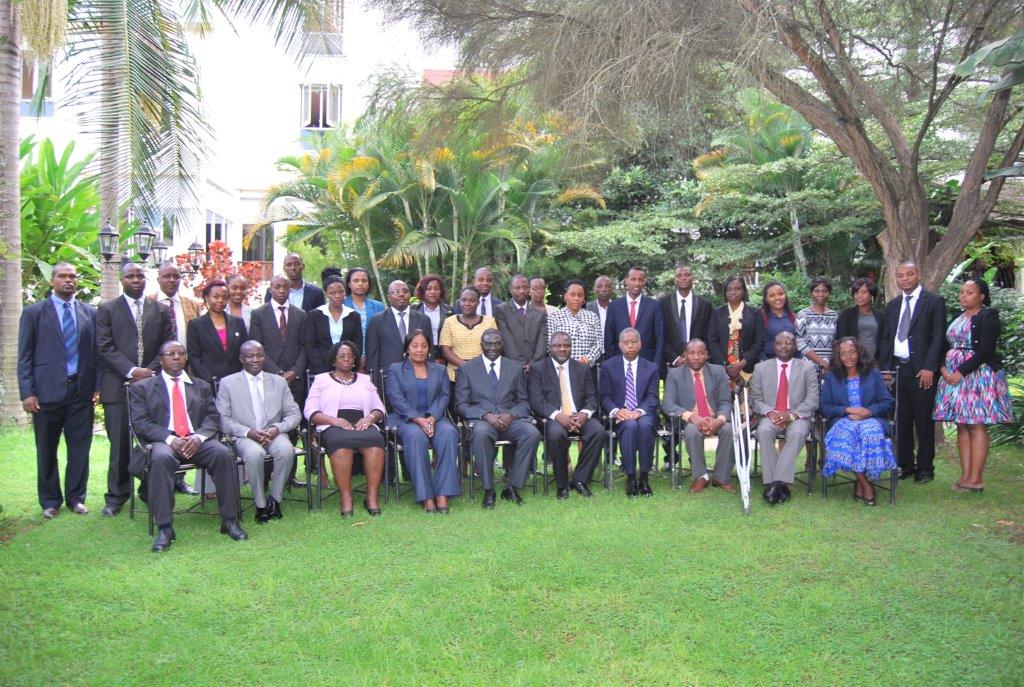- June 15, 2016
- Posted by: admin
- Category: Current News

 Public debt and public sector borrowing have implications not only on the current economic situation but also the future economic developments. Current borrowing may imply future additional taxes to repay the borrowed funds. It may also imply future increased borrowing to finance both repayment and interest payments, which could lead to an unsustainable debt burden and thus macroeconomic instability. There is also a reverse relationship whereby changes in key macroeconomic variables such as exchange rate, interest rate, and global and domestic prices of goods and services could adversely impact on debt management through high cost and risks. This calls for appropriate coordination of macroeconomic policies, particularly fiscal and monetary policies with debt management.
Public debt and public sector borrowing have implications not only on the current economic situation but also the future economic developments. Current borrowing may imply future additional taxes to repay the borrowed funds. It may also imply future increased borrowing to finance both repayment and interest payments, which could lead to an unsustainable debt burden and thus macroeconomic instability. There is also a reverse relationship whereby changes in key macroeconomic variables such as exchange rate, interest rate, and global and domestic prices of goods and services could adversely impact on debt management through high cost and risks. This calls for appropriate coordination of macroeconomic policies, particularly fiscal and monetary policies with debt management.
Recognizing the need for debt managers and macroeconomists to understand these inter linkages, MEFMI organised a regional training on Public Debt and Macroeconomic Management from 16th to 27th May 2016 in Arusha, Tanzania. The training was officially opened by the Permanent Secretary in the Ministry of Finance in Tanzania, Dr. Servacius Likwelile.
In his remarks, the PS commended MEFMI for organizing a workshop to enhance capacity on public debt and macroeconomic management. He said that there are high costs and risks associated with implementing public debt and macroeconomic policies in isolation without taking regard to their interlinkages or trade-offs. He noted that weak monetary policy could lead to high inflation which makes longer-term domestic debt excessively costly. He added that weak debt management policies that accommodate loose fiscal policies or those that promote costly and risky sources of financing could also increase interest payments in the government budgets thereby increasing the financing needs of the government, leading to unsustainable debt levels. In this regard, Dr. Likwelile said that policy makers need to have a solid understanding of these interactions in order to formulate and implement macro-economically consistent and fiscally sustainable public debt strategies and policies. He therefore urged governments in the MEFMI region to put in place mechanisms that promote interaction between the various actors in the economic management processes.
The training covered diverse topics on public debt and macroeconomic management, including: Macroeconomic convergence criteria and status for SADC, EAC, and other regional and global commitments on debt; Overview of current trends and key issues in public debt management; Objectives and rationale for borrowing and the financing options; Overview of the four macroeconomic accounts and their linkages with public debt; Macroeconomic forecasting for debt sustainability analysis; Management of fiscal risks; Introduction to Medium Term Debt Management Strategy, including analysis of costs and risks of public debt; Introduction to IMF/World Bank Debt Sustainability Framework; Analysis of public debt dynamics; Issuance of marketable domestic debt: choices and techniques; Development and maintenance of an efficient market for government securities; Yield curve development and analysis; Sovereign bond issuance procedures and key considerations; and, Debt Management Performance Assessment Framework (DeMPA), including linkages with Public Expenditure and Financial Accountability (PEFA).
Participants in the workshop were drawn from relevant departments in the Ministries of Finance and Economic Development as well as from Central Banks of Kenya, Lesotho, Mozambique, Namibia, Rwanda, Swaziland, Tanzania, Uganda, Zambia and Zimbabwe. The training targeted officials responsible for debt and macroeconomic management. A total of 29 participants attended the training, of which 13 were female, representing 45 percent of the total.
Seven (7) resource persons facilitated the workshop, namely: Brooks Robinson of IMF East Afritac, Maureen Were and Leonard Thotho of the Central Bank of Kenya, Pantaleo Kessy of East African Community Secretariat, Nebson Mupunga of Reserve Bank of Zimbabwe and Raphael Otieno and Stanislas Nkhata of MEFMI Secretariat.
The main outcome of the training was that it enhanced participants’ knowledge and understanding on the interlinkages between public debt and macroeconomic policy instruments and how public debt portfolios could be managed within the framework of fiscal prudence and broader macroeconomic stability. It also enhanced participants’ knowledge on regional integration macroeconomic convergence issues.
